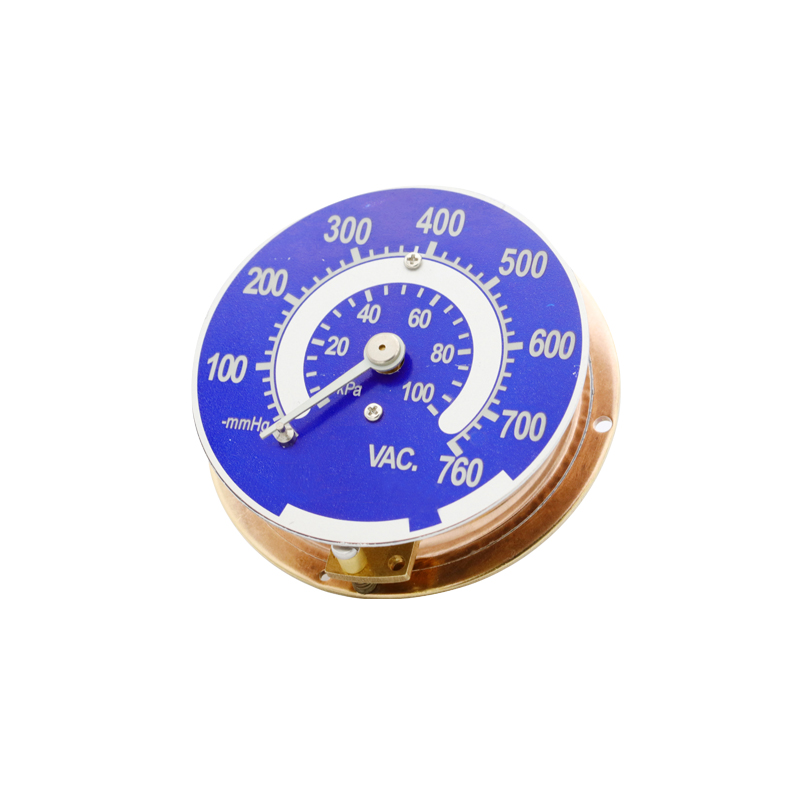
Nov . 30, 2024 22:11 Back to list
Understanding Vacuum Pressure Measurement Devices and Their Applications in Various Industries
Understanding Vacuum Pressure Gauges An Essential Tool for Precision Measurement
In various industrial and scientific applications, maintaining the right pressure levels is crucial for operational efficiency and safety. One essential instrument for monitoring and maintaining these levels is the vacuum pressure gauge. This article explores the working principles, types, applications, and the importance of vacuum pressure gauges in numerous fields.
What is a Vacuum Pressure Gauge?
A vacuum pressure gauge is an instrument used to measure pressure below atmospheric pressure, effectively registering vacuum conditions. Unlike standard pressure gauges that measure pressure in psi (pounds per square inch) or bar, vacuum gauges typically operate in units like inches of mercury (Hg) or millibars (mbar). They play a critical role in processes where low-pressure environments are necessary, such as in the manufacture of semiconductors, food packaging, pharmaceuticals, and vacuum distillation.
Types of Vacuum Pressure Gauges
1. Mechanical Vacuum Gauges These gauges utilize mechanical elements to measure pressure. Common types include Bourdon tube gauges and diaphragm gauges. They operate through the deformation of a sensing element in response to pressure changes, which is then translated into a readable format. Mechanical gauges are typically reliable for moderate vacuum applications.
2. Capacitive Vacuum Gauges Capacitive gauges utilize a diaphragm as a capacitive sensor. As the pressure external to the diaphragm changes, its movement alters the capacitance, which is then converted into a pressure reading. These gauges are highly accurate and are often used in applications requiring precise vacuum measurements.
3. Thermistor and Thermocouple Gauges These electronic gauges measure temperature changes resulting from gas collisions. As the pressure decreases, fewer gas molecules collide with the heated element, affecting its temperature. The change in temperature correlates with pressure levels, making these gauges suitable for high vacuum applications.
4. Ionization Gauges Used for ultra-high vacuum applications, ionization gauges measure the current produced by ionized gas particles in a controlled environment. They are highly sensitive and can measure pressure in the range of 10^-3 to 10^-12 Torr. These gauges are critical in research laboratories and in industries where extreme vacuum conditions are necessary.
Applications of Vacuum Pressure Gauges
Vacuum pressure gauges are integral in various industries
vacuum pressure gauge

- Semiconductor Manufacturing The fabrication of semiconductors requires controlled environments with low pressure to avoid contamination and ensure quality. Vacuum gauges help maintain these conditions.
- Food Packaging In the food industry, vacuum sealing preserves food by removing air, thus extending shelf life
. Vacuum pressure gauges ensure that the correct pressure levels are achieved during packaging processes.- Pharmaceuticals The production of drugs often involves processes that require low air pressure to prevent oxidation and contamination. Reliable vacuum measurements are vital for maintaining the integrity of pharmaceutical products.
- Research Laboratories In scientific research, particularly in physics and chemistry, vacuum conditions are often necessary for experiments. Ionization gauges and other sensitive pressure gauges are crucial for these applications.
Importance of Vacuum Pressure Gauges
The importance of vacuum pressure gauges cannot be overstated. Accurate pressure measurements are essential for
- Process Control Ensuring the correct pressure levels can optimize production efficiency and product quality in manufacturing processes.
- Safety Regular monitoring of vacuum conditions helps prevent equipment failures and hazardous situations, protecting both personnel and machinery.
- Cost Efficiency By maintaining optimal pressure levels, industries can reduce waste, save energy, and avoid costly downtime associated with equipment malfunction.
Conclusion
Vacuum pressure gauges are indispensable tools that enhance precision and safety across various sectors. Understanding the different types and their applications helps industries select the right gauge for their specific needs. As technology advances, these gauges will continue to evolve, offering even greater accuracy and reliability, ultimately contributing to improved operational excellence in numerous fields. Whether it's in a factory, a lab, or an industrial plant, the role of vacuum pressure gauges remains critical in the pursuit of precision and efficiency.
-
High-Precision 5 Valve Manifold Differential Pressure Gauge Suppliers
NewsApr.29,2025
-
High-Precision Diaphragm Vacuum Pressure Gauges Manufacturers & Quotes
NewsApr.29,2025
-
Omega Differential Pressure Gauges High Accuracy & Durability
NewsApr.28,2025
-
Low Pressure Differential Pressure Gauges Precision Solutions & Quotes
NewsApr.28,2025
-
Digital Diaphragm Pressure Gaauge Precision Measurement & OEM Quotes
NewsApr.28,2025
-
Differential Pressure Gauge China Price High-Accuracy & Best Quotes
NewsApr.28,2025
